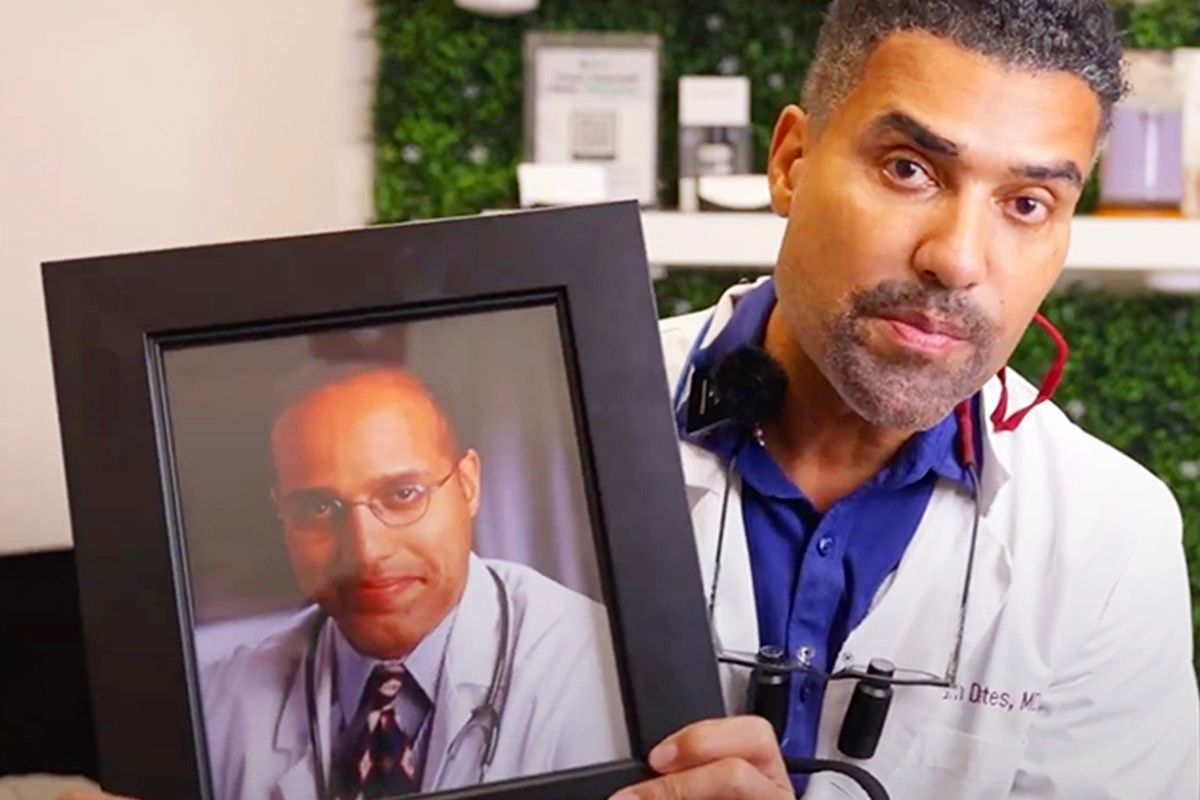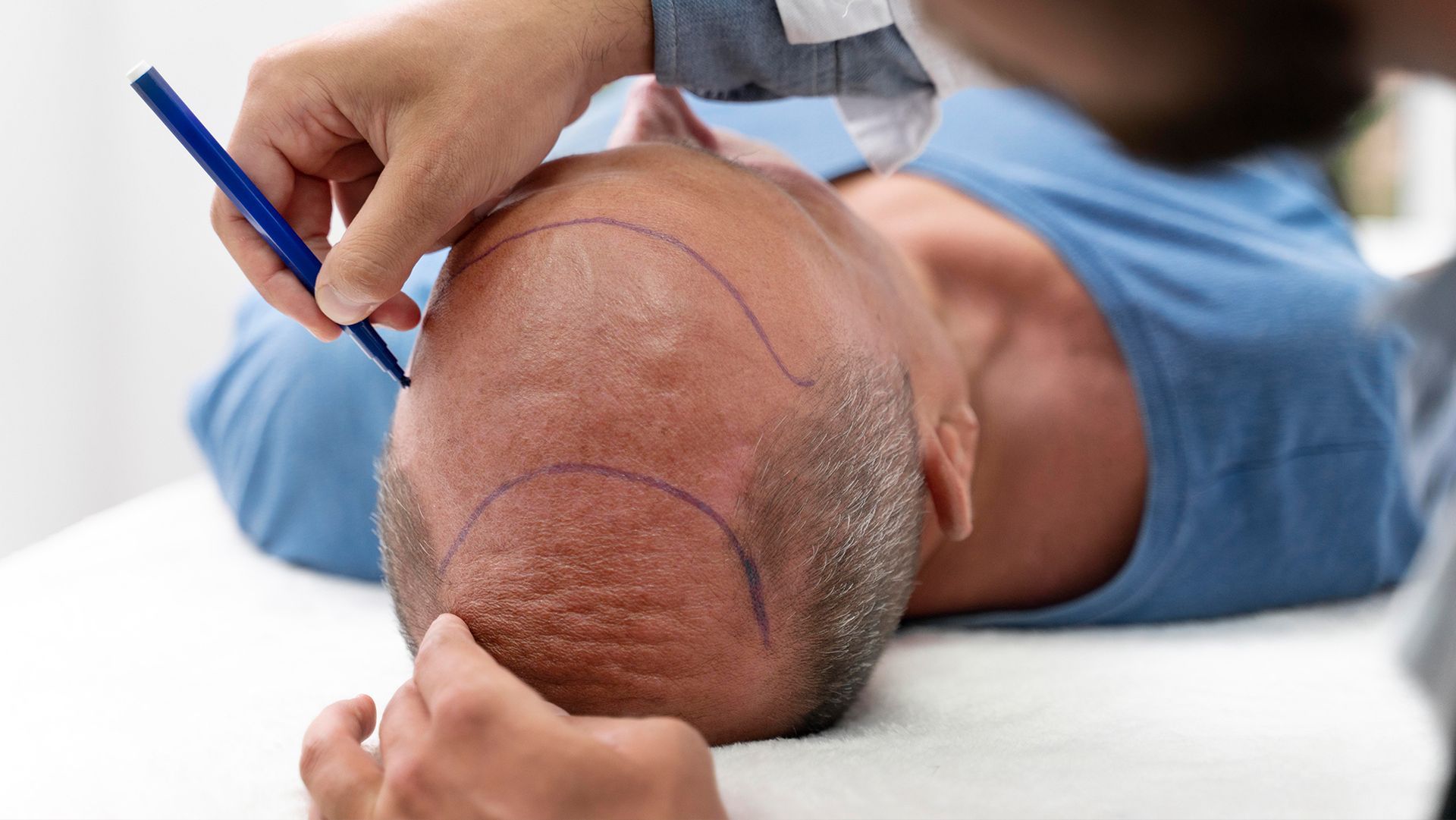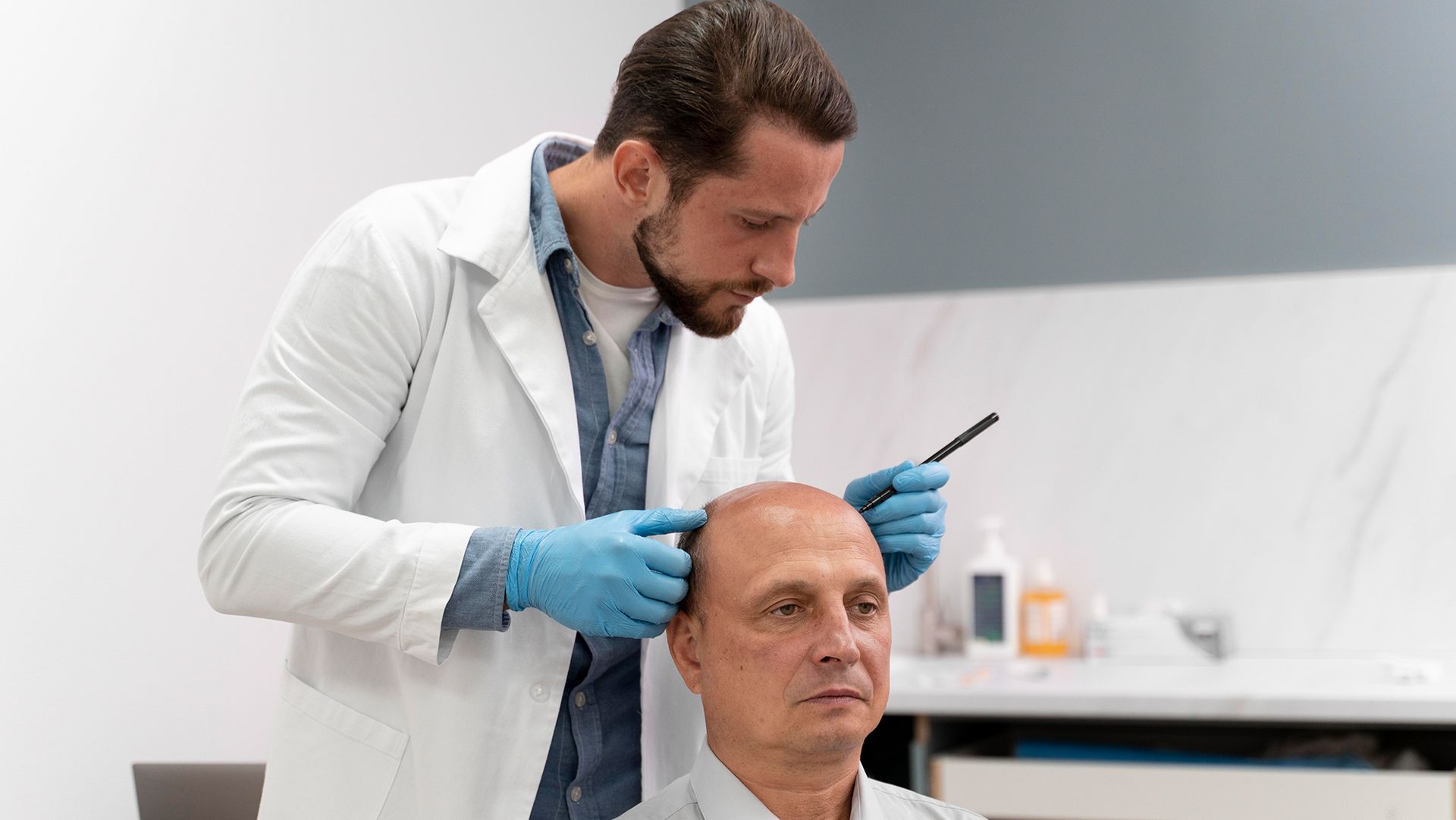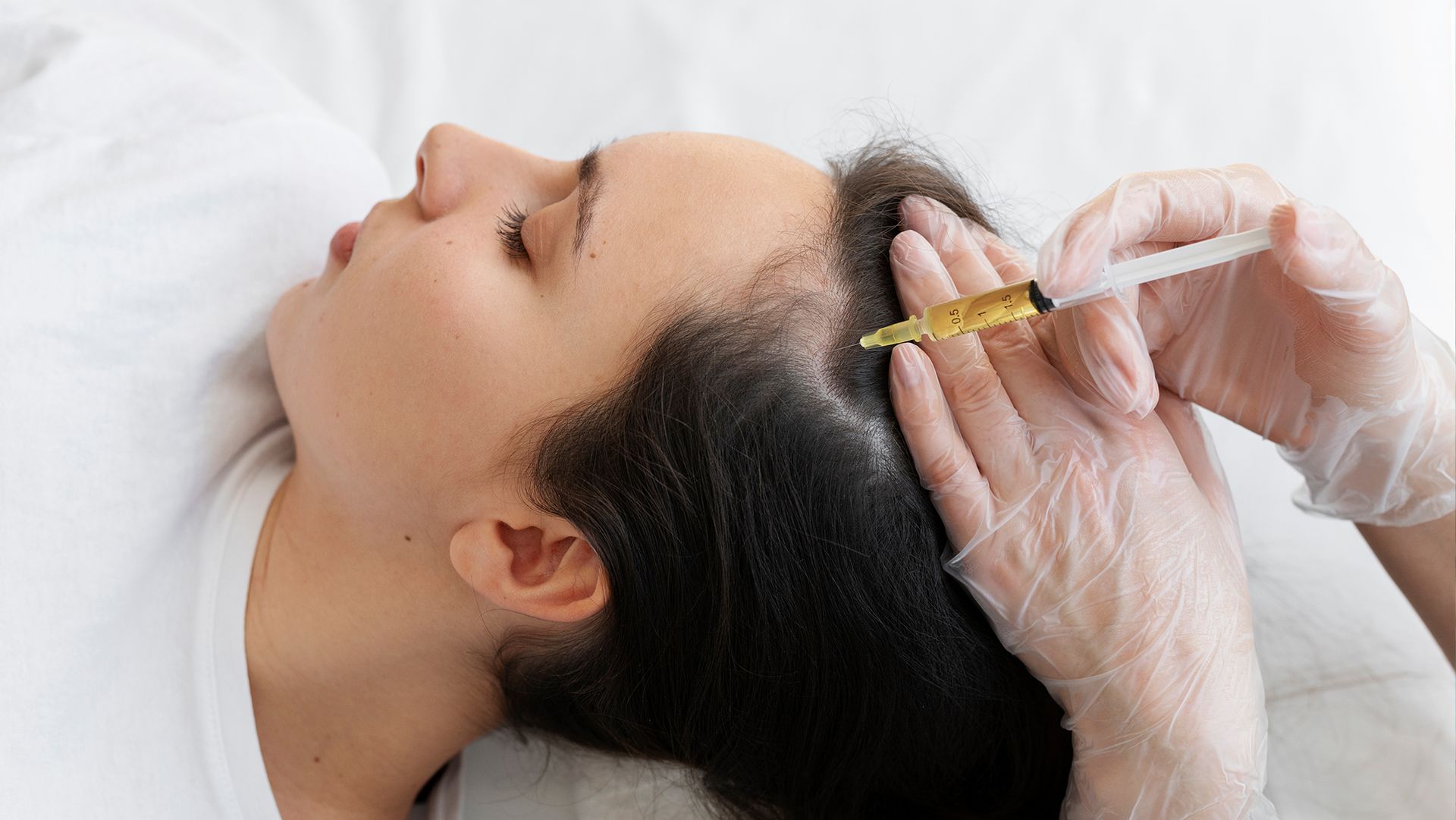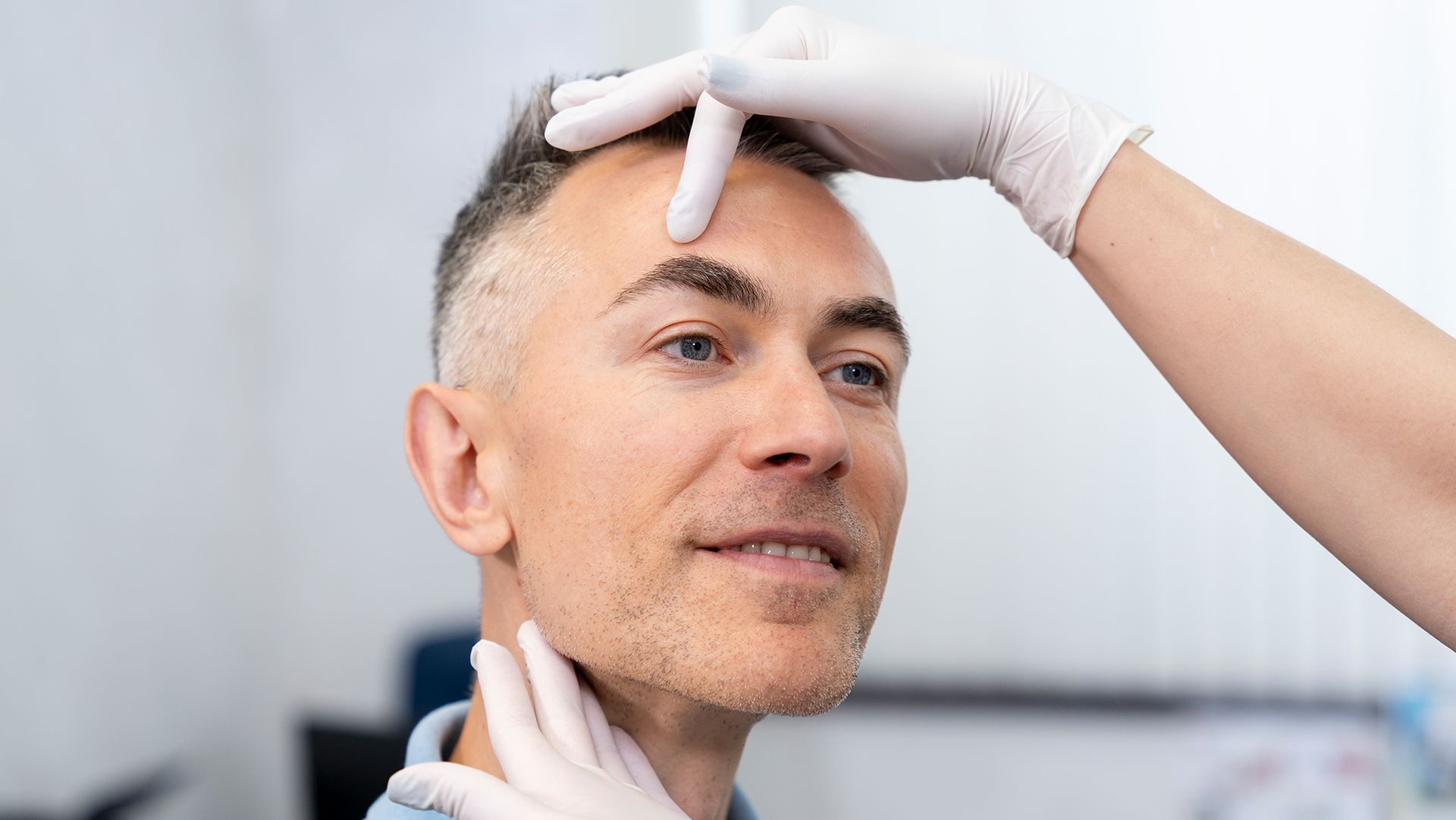Hair Loss Associated with Testosterone?
Anyone who has struggled with male or female pattern balding has probably done some investigative work in hopes to find a solution to stop or slow the process down. And, after doing a bit of research has most likely concluded the correlation of higher dihydrotestosterone (DHT), an androgen hormone, with thinning hair and reseeding hair lines.
DHT is a byproduct of testosterone. Many men often think what seems logically simple to assume that “If DHT comes from testosterone, then I must be ultra-manly and am making too much testosterone that is killing my handsome head of hair!”
This is a very rational thought to have and even some researchers have thought the same. Seems like a logical reason, but is it the answer? Even with men who are much older?
Having Alopecia Doesn’t Mean You Have High Testosterone
The thought that all men with male pattern baldness have too high of a testosterone level rarely holds any validity. If we sit back and think logically about this as well with regards to men prone to male pattern balding, we can surely conclude that most of these younger guys in their late teens and twenties with full heads of thick and healthy hair have much higher testosterone levels than older guys in their 30s, 40s and 50s that happen to have much less hair.
A few things to acknowledge:
- As concluded in this study- older, aging men generally have lower levels of testosterone, but have much higher odds of hair loss.
- Many studies have also showed similar levels of testosterone in both balding and non-balding men.
- Alopecia has been seen in men with both high and low levels of testosterone.
DHT Can Be Puzzling
Trying to figure out male pattern balding without having all the answers can get a bit “patchy” and confusing.
Although we know there is in fact a correlation of DHT with receding hair lines, experts have still struggled to figure out exactly why and therefor nothing has been discovered to prevent it from happening.
And as mentioned, DHT is also known to be supportive of our hair. And, on many heads the hair and DHT co-exist in harmony with one another with no problems at all. Some simply have a genetic sensitivity to this multi-faceted sex steroid, DHT.
A study from the University of Edinburgh last year in 2017 was released that contributed to understanding male pattern balding. It was the largest genetic analysis of bald men to date and with promises to provide targets for future treatments. But, there is still a lot more work to be done to link which genes are interacting with DHT and, how.
DHT: Category 1 and 2
DHT can be separated into two categories however. The first is serum DHT that circulates around in the blood. The second is tissue DHT which is what binds to receptors in your scalp, skin and other places in or on the body that attract DHT.
Of these two categories, tissue DHT found within the scalp is linked to male pattern hair loss. - Much of this has been thought to occur due to more receptors in tissue (like skin & scalp) attracting more DHT like a magnet, netting an overwhelming amount which can wreak havoc on the hair follicles over time.
Serum (blood) DHT on the second hand, has been found to be higher in young men that do not suffer from any hair loss! – Click here to read. This should not come as a surprise when knowing that young men have much higher levels of testosterone!
In short and keeping things simple, testosterone converts into many other things within the body such as estrogen and more, aside from just DHT. Within an aging man’s body whose testosterone levels are declining, the rate of conversion into more DHT and less of the other byproducts of testosterone, tends to increase (ouch!!).
This is what’s thought to explain how DHT levels can tend to remain constant (or elevated), even when T levels are dropping lower. This is also one more reason NOT to ignore crippling symptoms of having low testosterone or other hormone imbalances that may be impeding your ability to live your life to the fullest that you deserve.
What Causes Men Hair Loss?
Although reasons can vary, the most common cause of male pattern balding is due to genetics, often having a family history of baldness.
So, in short with regards to the cause of hair loss; it largely boils down to some little evil devil in the genetic code that interferes with how DHT can work within. Unfortunately, it sounds like it messes with DHT’s ability to do good work and encourages it to screw things up on our dome that keep us feeling young and handsome!
One thing that most likely is NOT contributing to hair loss, is having a healthy and optimized endocrine system consisting of optimized testosterone and other hormones nicely working in harmony with one another. Nobody should ever falsely buy into the idea that they need to suffer here with the false pretense that they may prevent their hairs from falling out.
If it’s in the genetic code of cards you’ve been dealt, there are smarter and more effective ways that Dr. Yates just so happens to offer to have a full head of hair!
Other Potential Explanations for Losing Hair
- Hormone imbalances (other than testosterone > DHT talk)… Too little thyroid hormone or an imbalanced ratio of estrogen may contribute.
- Incorrect dietary intake – such as taking in too little iron or excessive amounts of vitamin A.
- Boat loads of stress.
- Braids, cornrows, tight ponytails and similar for extended, long periods of time.
Why is Having Optimized Hormones Important?
Hormone optimization is not just for women going through menopause, and men going through andropause, but is important for all of us!
Hormones are of increasing concern due to the huge impact of hormonally disrupting chemicals in our environment, nutrient depletion in soil and food, and the impact of stress. It can be hard to avoid environmental chemicals and stress, BUT still effective to address the hormonal consequences, improve symptoms now, and prevent disease down the road!
We take more medications than ever that aren’t fixing our problems, and cause unnecessary side effects, but we CAN change this reality.
Who Can Benefit from Having Optimized Hormones?
In short, essentially everyone! We are the most vibrant, healthy and energetic versions of ourselves when our endocrine system is in top shape and flowing well – such as how they are when we’re young!
Do you struggle with these symptoms? fatigue, mood swings, anxiety, tension/irritability, poor sleep, depression, lack of focus, brain fog, hot flashes, night sweats, weight gain, joint pain, headaches, bladder symptoms, and decreased interest in intimacy or erectile dysfunction?
What Hormones Have the Most Influence?
From age 20-40, men and women are likely to lose 50% of their testosterone production. This can and often does, happen pre-maturely due to excessive stress and poor lifestyle habits as well.
Low testosterone in men & women = higher risk for heart disease, dementia & diabetes. Much of this with regards to heart disease and diabetes, is due to atrophy (loss of) muscle because of an insufficient amount of testosterone to support it.
Benefits of optimization: protects the heart, bones and brain; May help to improve cholesterol, energy, sleep, feeling of well-being, body fat to muscle ratio, stronger bones, reduce “brain fog,” and may help alleviate depression.
● ESTROGEN
Drops in and after menopause; has over 400 functions in the body including keeping those hot flashes under control, maintaining bone density, collagen to keep your skin nice, memory, and more. However, in some women and men, there may be estrogen dominant concerns as well.
With men, this has become an almost epidemic of sorts as we have seen more feminine characteristics in men than ever before coupled with the obesity problem that has become such a major concern.
Too much estrogen in men is often a major contributor to low testosterone, obesity and more. Whether it is increasing or keeping it under control, this is important to have in an optimized zone.
Has Been Shown to Improve Many Facets of Our Health Including:
Quality of sleep as it pertains to muscle and strength restoration (w/ some resistance training), younger & thicker looking skin, strength of bones, Modulation of cell proliferation and survival, Cardiac performances and vascular resistances, Immune Function, Glucose Metabolism & Fat Loss Efforts, Skin, Muscle, Hair and Connective Tissues.
● THYROID HORMONE
Living in our modern and industrialized world, stress and the impact of environment chemicals, nearly 40% of Americans are assumed to have low thyroid.
Those suffering from low thyroid often feel tired and weak, have cold hands and feet. Further, they will often have thin or weak hair, nails and skin. Unwarranted weight gain and increased body fat, lack of motivation and poor mood are some other common symptoms.
Benefits of optimizing thyroid hormone and backing up a sluggish thyroid: Stronger hair and nails, faster metabolism, enhanced cognitive function and energy.
● PROGESTERONE
For some women, this may help to improve symptoms of PMS, act as a player to balance the testosterone to estrogen ratio, Depression, and has been shown to lend a hand to alleviate anxiety and help with sleep.
Where Can I Get Help to Optimize My Hormones and/or Testosterone?
Choosing a health care provider is more important than choosing what mechanic you may take your car too. Without hesitation, Dr. Yates MD encourages a visit to the folks over at YOUTH-Rx. They just so happen to be right here in the Chicago area, conveniently located in downtown Naperville, IL.
At YOUTH-RX , they provide a complete and professional individualized program along with support to assist you in services such as Hormone Replacement Therapy, Fitness, Nutrition, and if needed; a Weight Loss program. They have been fortunate enough since 2004 to have the privilege of helping hundreds upon hundreds of satisfied clients transform into happier and more energetic individuals through their programs.
They are proud to offer services to many clients around the country as well. All their programs are administered (to qualifying clients) under the strict supervision of their doctors.
You are here visiting us today for a reason. You are likely a bit ahead of most with regards to wanting to take care of your health, hair and well-being. Looking for and finding the right answers can be quite a task but we are here to assist you with finding the right solutions to look and feel your best.
Have questions about HRT or testosterone optimizing programs? Contact YOUTH-Rx here > Contact Youth FX
If you are ready to move forward with pursuing an HRT program to help you look and feel your best at this time, the next step is a quick online from to complete.
Submit here> ONLINE FORM
Tell them Dr. Yates sent you for a complimentary phone consultation and a discount off your initial lab work!
Cheers to feeling great and looking sharp.
